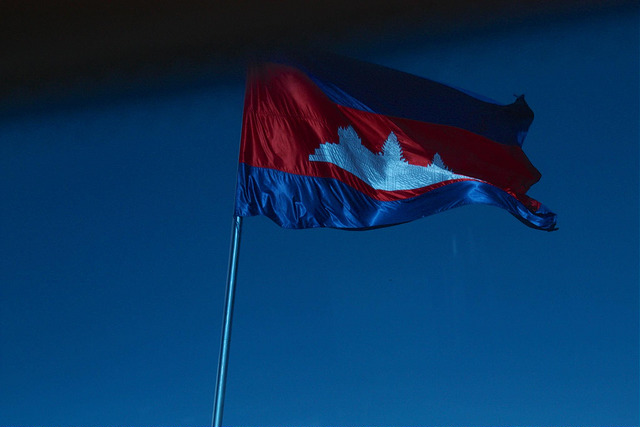News
Cambodia’s ruling party has sure lock on Senate election

Cambodia’s ruling party is assured of a sweeping victory in the election of a new Senate after the only real opposition to it was eliminated. (Photo by Warrick Wynne/Flickr, CC BY-ND 2.0)
PHNOM PENH, Cambodia — Cambodia’s ruling party is assured of a sweeping victory in the election of a new Senate after the only real opposition to it was eliminated.
The Senate has minor decision-making powers in Cambodian politics, primarily rubber-stamping legislation, but the foregone conclusion of Sunday’s vote will be a foretaste of a general election for the National Assembly. The polls in July are sure to sustain the rule of the Cambodian People’s Party and long-serving Prime Minister Hun Sen.
The only opposition party in Parliament, the Cambodian National Rescue Party, was dissolved in November after aggressive legal challenges by the government were sustained by the politicized courts.
Government supporters then replaced the party’s members of Parliament and its commune councillors — the voters in Sunday’s indirect election.
Hun Sen has been in power for three decades, and while maintaining a framework of democracy, tolerates little opposition. His grip seemed shaken by 2013’s general election, when the Cambodia National Rescue Party mounted a strong challenge, winning 55 seats in the National Assembly and leaving Hun Sen’s party with 68.
The opposition also made a strong showing in last year’s commune council elections, capturing 5,007 of the 11,572 councillor positions.
Hun Sen’s ruling party then stepped up its steady offensive against critics and opponents. Media outlets seen as critical of the government were forced to shut down, and most senior members of the Cambodia National Rescue Party fled abroad.
“Without the presence of the main opposition that has 55 MPs and 5,007 commune councillors representing the will of the people, there will be no real free and fair competition as determined by the principles of free, fair and inclusive elections,” said a statement on the Senate election from the Cambodia National Rescue Party, emailed by Mu Sochua, its former deputy president, now in exile.
“We urge the United Nations and the international community to denounce the holding of the Senate election this week-end and to take immediate and stringent measures including sanctions as a signal that it will not condone dictatorship,” it said.
The United States, and last week, Germany, have banned issuing visas to certain Cambodian officials considered responsible for the deterioration of democracy.
Rights groups have also been highly critical.
“Unfortunately, the Cambodian Senate will continue to stand as yet another sad reminder of Cambodia’s unmitigated descent into outright dictatorship,” said Charles Santiago, a member of the Malaysian Parliament and chairman of ASEAN Parliamentarians for Human Rights, comprising Southeast Asian lawmakers.
Only three small parties with no national following are running Senate candidates against the Cambodian People’s Party. The commune councillors elect 58 senators, the National Assembly chooses two, and King Norodom Sihamoni, who wields no political power, names two. Senators serve six-year terms.
National Election Committee spokesman Dim Sovannarum said preliminary results are expected to be announced on Sunday after ballots are counted and the official results are to be announced on March 3.





















